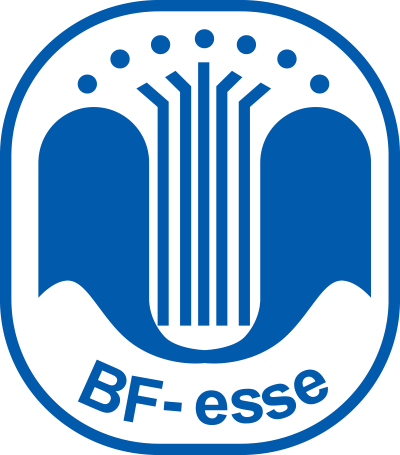Research and development (R&D) is the strategic cornerstone of product success in the highly competitive and strictly regulated private label food supplement market, not just a backend technical function. Whether you're introducing a new line or changing an existing formulation under your brand, a comprehensive R&D process determines everything from taste and texture to safety, scalability, and shelf appeal.
At BF-EssE, our private label services are founded on a science-led, regulation-first approach that ensures every formulation is not only market-ready but also efficient in terms of manufacturing and compliant with regulations from the outset.
Additionally, BF-EssE's R&D helps clients overcome regulatory obstacles both inside and outside of the EU. We guarantee that your product won't eventually have to undergo expensive reformulations or deal with labeling issues, from ingredient validation to health claim substantiation. Prototyping, pilot batching, and stability testing are all steps in our process that give you a clear idea of how your supplement will act under actual circumstances.

Flavors, colors, and sensory profiles are extremely important.
- Sachets (especially single-dose)
- Loose powders (in jars or tubs)
Mask the taste of unpalatable active ingredients (such as iron, magnesium, and amino acids).
- Modify the acidity and sweetness, particularly in vitamin or collagen blends.
- Verify that colorants are stable, natural, and adhere to US and EU regulations.
- Avoid unpleasant smells or sour aftertastes.
WHY R&D MATTERS IN PRIVATE LABEL SUPPLEMENTS?
Private label supplement brands operate in a unique space: they need to offer high-quality, ready-to-market products under their own branding — but without full in-house control over formulation or production.
R&D serves as the link between a brand's vision and a product that can be manufactured, complied with, and stands out in the market. This is where an experienced CMO like BF-EssE comes in.
WITHOUT R&D:
- You risk flavoring that clashes with active ingredients
- Poor flow in capsules leads to dose inconsistency
- Powders clump, sachets fail, and customer experience suffers
- Regulatory approval becomes delayed or denied
- Scaling to new markets is blocked by missing documentation
Angle of Repose


Will it flow smoothly without clogging or jamming?
Can it be filled consistently at scale?
- Angle of reposeIn supplement manufacturing, the angle of repose is a key measure used to evaluate how a powder behaves understanding this angle is essential because it directly impacts:
- The flowability decreases with increasing angle.
- The powder flows more freely at flatter angles.
- This is important because:
- Making sure that capsules are filled efficiently, whether manually or automatically
- Preventing irregularities in dosage
- Avoiding machine downtime or cross-contamination
Filling Technology: Auger vs. Stamped Pin
- Auger Filling MachineBest for fine, flowing powders
Uses a rotating screw to dose consistent volumes
Requires precise R&D work to select the right excipients for flow1 - Stamped Pin (Tamping Pin) MachineSuitable for granular or low-flow powders
Compresses powder into slug before insertion
R&D determines compression force and granulation need
Failing to test flow and compression characteristics can lead to:- Underfilled or overfilled capsules
- Powder leakage or separation
- Poor capsule integrity during transport or shelf-life
2
- Increase compressibility and flowability (e.g., with MCC, silica)
- Improve flavor masking (stevia, flavor carriers, etc.)
- Increase shelf life and stability (e.g., anti-caking agents)
- Enhance digestion and bioavailability (e.g., solubilizers)
- Every component is chosen using the following criteria:
- Operational effectiveness
- Regulatory status (e.g., GRAS, EFSA-approved)
- Compatibility between packaging and active ingredients
- The excipient list is not just filler — it's a functional component of your supplement’s efficacy, manufacturability, and legal viability.
- From R&D to Compliance:Technical Dossier & Formulation Certificate
Once the R&D process is complete, you receive:- Formulation Certificate (FC) – details exact composition, dosage, and active content
- Technical Dossier – includes test results, and documentation required for:
- EU compliance
- Export documentation
- These documents make your product:
- Scalable across markets
- Transparent for regulators
- Ready for private label branding
- The formula is stable and reproducible
- All excipients are accounted for
- Dosing and sensory experience are optimized
Category | Benefit | Details / Examples |
Market Differentiation | R&D enables unique product positioning beyond competitor copies | - Add novel ingredients (e.g., adaptogens, botanicals) - Use advanced delivery (e.g., delayed-release, microencapsulation) - Combine formats (e.g., capsule + sachet bundle) |
Faster Time to Market | Proper documentation and testing reduce launch friction | - Prevents label rewrites - Minimizes risk of compliance-related recalls - Avoids import/export delays |
Cost Optimization | R&D reduces unnecessary expenses across development and production | - Identifies cost-effective excipients - Improves format efficiency (e.g., fill ratios) - Reduces production waste |
- It reduces risk
- Enables confident scaling
- Enhances product performance
- And ensures you're compliant before you're on the shelf
Let us help you transform your supplement idea into a scientifically backed, consumer-ready, and regulator-approved product — built to grow with your business.

Contact BF‑EssE’s team for tailored support.
- We offer full R&D services.
- Just send us your idea, and our team will handle it.
- Let’s create your next hero product.



